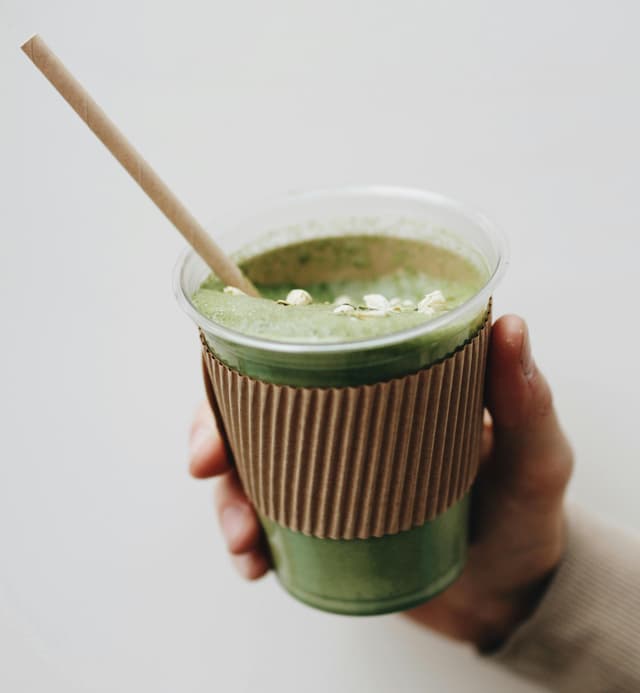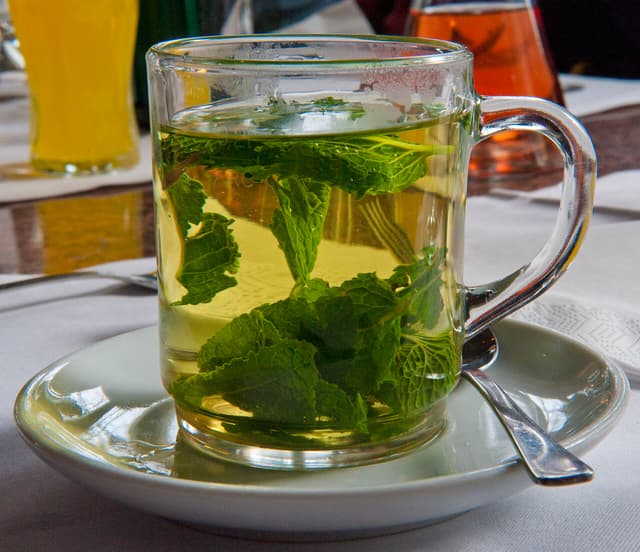Matcha Tea vs. Mint Tea
Matcha Tea
Matcha tea is a smooth, vibrant green beverage made by whisking finely ground green tea leaves into hot water. Unlike regular green tea, where the leaves are steeped and removed, matcha is fully consumed, which gives it a fuller body and a richer, more complex flavor. The taste is a blend of grassy freshness, gentle bitterness, and a deep, savory umami that lingers pleasantly. High-quality matcha can be surprisingly sweet and creamy, while lower grades tend to be more astringent. Preparing matcha is as much about the process as it is about the drink itself. The powder is first sifted into a bowl to break up any clumps, then a small amount of hot water—usually around 80°C—is added. Using a bamboo whisk, called a chasen, the tea is briskly whisked in a zigzag motion until a layer of fine, soft foam forms on top. This foam not only looks appealing but also softens the tea’s natural bitterness, creating a silky texture and smooth mouthfeel. There are two primary styles of matcha tea: usu...
Mint Tea
Mint tea is a warm drink made by soaking fresh or dried mint leaves in hot water. It’s simple—just mint and water—but the taste is fresh and cool, with a hint of sweetness depending on the type of mint you use. Peppermint tea has a stronger, sharper flavor, while spearmint tea is milder and a bit sweeter. People often drink it to relax or help with digestion. It’s popular in many places around the world—like in Morocco, where it’s made with green tea and lots of sugar, or in India, where mint is sometimes added to chai. In Korea, they have a version called bakha-cha. Making it is easy: boil some water, pour it over the mint leaves, let it sit for a few minutes, and you’re good to go. Some folks like adding honey or lemon, but it’s just as nice plain. The smell alone is pretty calming—fresh, like a garden after rain.
Reviews
Reviewed on 2/25/2025
Green and exciting
Reviews
Reviewed on 2/25/2025
Refreshing and caffeine-free. Popular for its curative effects. Anti-inflammatory.
| Item | Votes | Upvote |
|---|---|---|
| Super healthy and delicious | 1 |
| Item | Votes | Upvote |
|---|---|---|
| Can be an acquired taste for some | 1 |
| Item | Votes | Upvote |
|---|---|---|
| Caffeine-free | 2 | |
| Refreshing | 2 | |
| Anti-inflammatory | 2 |
| Item | Votes | Upvote |
|---|---|---|
| No cons yet, would you like to add one? | ||
Frequently Asked Questions
Matcha Tea is known for being super healthy and delicious, offering high levels of antioxidants and other health benefits. However, it can be an acquired taste for some. On the other hand, Mint Tea is caffeine-free, refreshing, and has anti-inflammatory properties. The choice depends on whether you prefer a tea that provides a caffeine boost and a unique taste or a soothing, caffeine-free option with curative effects.
Mint Tea is a better choice for those looking for a caffeine-free option. It is naturally caffeine-free, refreshing, and has anti-inflammatory properties. Matcha Tea, on the other hand, contains caffeine and may not be suitable for those avoiding it.
Mint Tea is typically considered more refreshing due to its natural minty flavor and cooling effect. Matcha Tea has a unique, earthy flavor that may not be as universally refreshing. Therefore, for a refreshing drink, Mint Tea is generally preferred.
Matcha tea is a smooth, vibrant green beverage made by whisking finely ground green tea leaves into hot water. Unlike regular green tea, where the leaves are steeped and removed, matcha is fully consumed, providing a fuller body and a richer, more complex flavor. It has a blend of grassy freshness, gentle bitterness, and a deep, savory umami that lingers pleasantly.
The pros of Matcha Tea include that it is super healthy and delicious, making it a great choice for those looking to enhance their diet. However, a con is that it can be an acquired taste for some individuals, which may not appeal to everyone.
Preparing Matcha Tea involves sifting the powder into a bowl to break up clumps, adding a small amount of hot water (around 80°C), and whisking it briskly with a bamboo whisk called a chasen until a layer of fine foam forms on top. This process not only enhances the flavor but also creates a silky texture.
There are two primary styles of Matcha Tea: usucha and koicha. Usucha, or thin tea, is lighter and frothy, while koicha, or thick tea, is denser and has a bold, concentrated taste. Koicha is typically reserved for formal tea ceremonies, emphasizing the ritual of preparation and consumption.
The striking green color of Matcha Tea comes from the way the tea plants are grown. They are shaded from sunlight for several weeks before harvest, which boosts their chlorophyll content and enhances the umami flavor while reducing bitterness. This process also contributes to the calming effect of matcha despite its caffeine content.
Matcha Tea has found new life in modern drinks such as lattes, iced teas, and smoothies. It is enjoyed both during traditional tea gatherings and as part of a morning ritual at home, providing a calming moment in a busy day.
Mint Tea has several pros, including being caffeine-free, refreshing, and having anti-inflammatory properties. There are no cons listed for Mint Tea, making it a popular choice for those looking for a soothing beverage.
Mint Tea is made by soaking fresh or dried mint leaves in hot water. It is a simple drink that consists of just mint and water, although some people like to add honey or lemon for extra flavor.
There are different types of Mint Tea, with peppermint tea having a stronger, sharper flavor, while spearmint tea is milder and a bit sweeter. Additionally, variations exist in different cultures, such as Moroccan mint tea made with green tea and sugar, and bakha-cha in Korea.
Mint Tea is often consumed for its relaxing properties and potential digestive benefits. It is also noted for its anti-inflammatory effects, making it a soothing choice for many.
To prepare Mint Tea, simply boil some water, pour it over fresh or dried mint leaves, let it steep for a few minutes, and enjoy. It's a quick and easy process that results in a refreshing drink.
Related Content & Alternatives
- 2
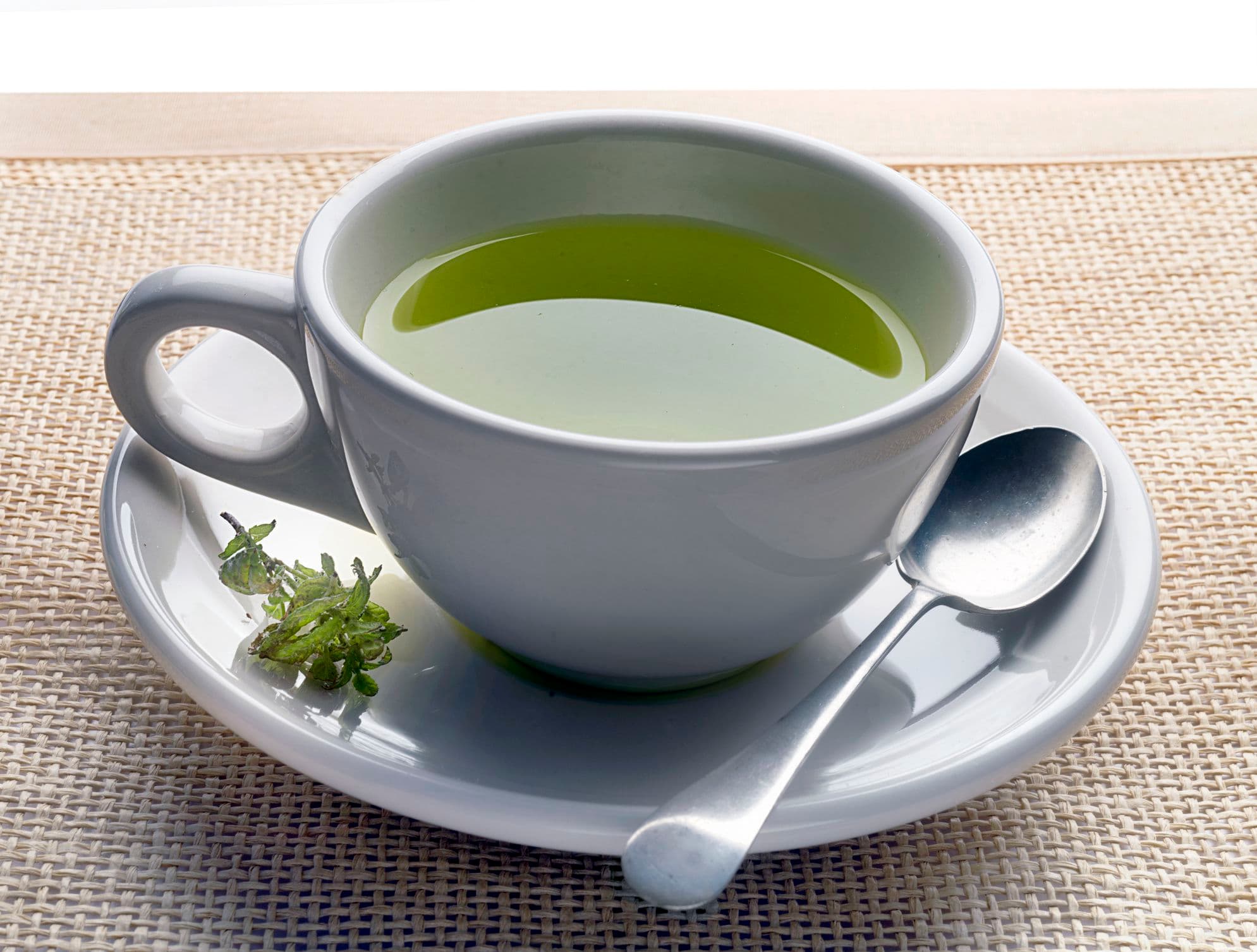 2.Green Tea
2.Green TeaGreen tea is a type of tea made from the leaves of the Camellia sinensis plant. Unlike black or oolong teas, green tea is made by heating the leaves soon after picking to prevent oxidation. This keeps the leaves green and gives the tea its fresh, grassy taste. It originally came from China but is now popular across East Asia, especially in Japan, Korea, and Vietnam. There are many kinds of green tea, depending on where it's grown, how it's processed, and when it's harvested. For example, Japan’s sencha is steamed, giving it a bright green color and a sweet flavor, while China’s longjing is pan-fired, making it more toasty and mellow. Making a cup is simple: just steep the leaves in hot water, but not boiling—usually around 70–80°C (160–175°F)—for a couple of minutes. If the water is too hot or you steep it too long, the tea can taste bitter. Green tea has been linked to many health claims, but the evidence is mixed. It does have some caffeine, though less than coffee, and contains antioxidants called catechins. People drink it for various reasons—some like the taste, some believe it helps with focus, and others just enjoy the ritual of making it. In the end, green tea is just a straightforward drink that’s been around for ages. Some people love it, some don’t—it’s really about what suits your taste.
- 2
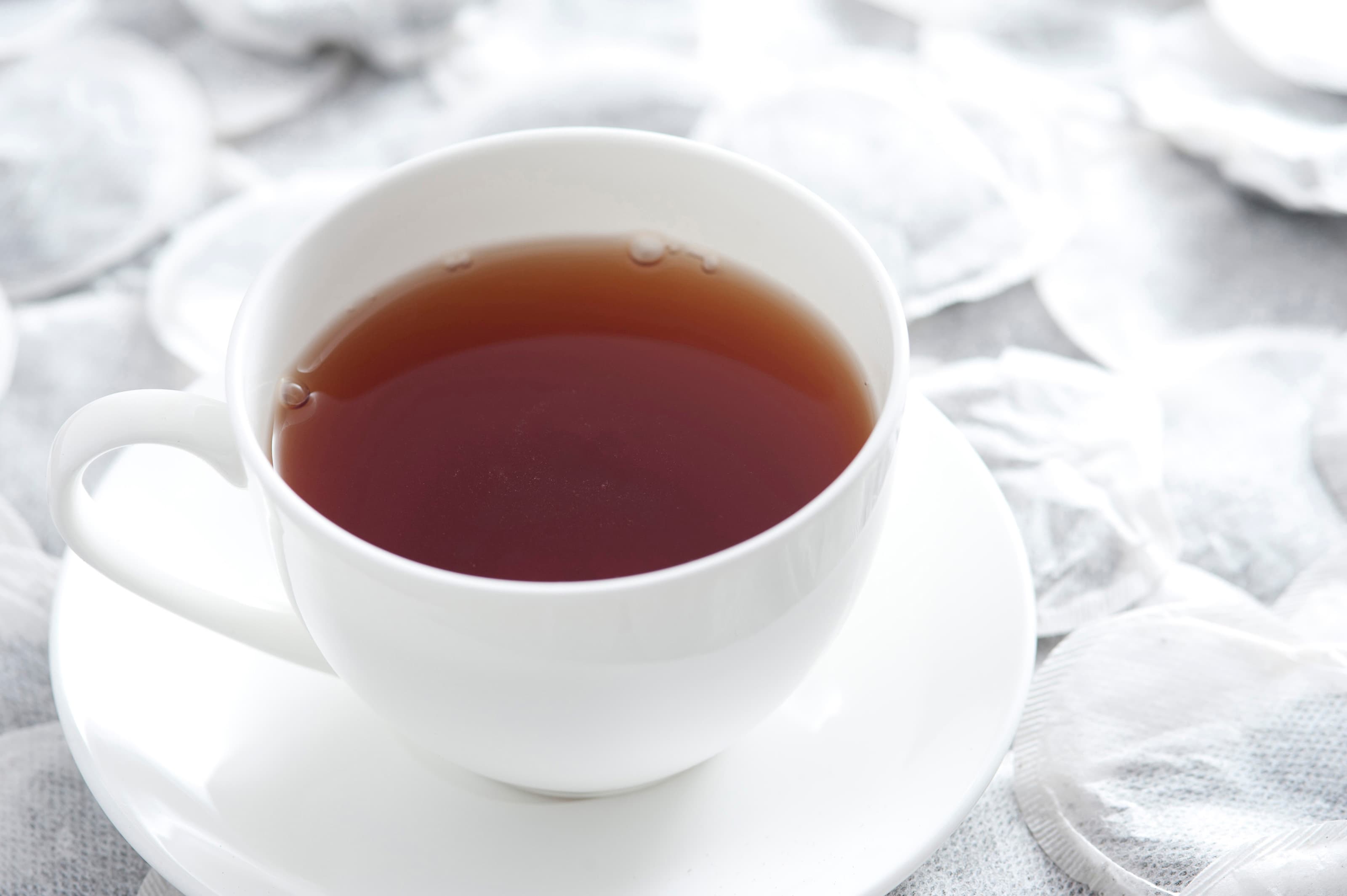 3.Black Tea
3.Black TeaBlack tea is the kind of drink that’s been around for ages, traded across continents, sipped at fancy afternoon teas, and downed in travel mugs on rushed mornings. It comes from the Camellia sinensis plant, just like green and white tea, but what sets it apart is the full oxidation of the leaves. That process turns them dark and gives black tea its deep reddish-brown color when brewed, along with that strong, punchy flavor that can be malty, smoky, fruity, or floral—depends on where it’s from and how it’s made. There are loads of varieties. Assam from India is bold and malty—perfect with a splash of milk. Darjeeling, often called the "champagne of teas," is lighter, floral, and sometimes a bit fruity. If you’re in the mood for something smoky, Lapsang Souchong from China tastes like someone brewed tea in a campfire—but in a good way. Ceylon from Sri Lanka strikes a nice balance—brisk and refreshing. The cool thing is, black tea keeps its flavor for years, unlike green tea that goes dull after a while, which made it ideal for long trade journeys back in the day. Brewing a cup is simple. Boil water (none of that lukewarm stuff), pour it over the tea leaves—or a tea bag if you’re in a hurry—and let it steep for 3 to 5 minutes. Go shorter if you like it mellow, longer if you’re after that strong kick. Milk and sugar? Sure, if that’s your thing. Lemon works too. Or just drink it plain and let the flavors do their thing. There’s something calming about it—the steam curling up from the cup, the earthy smell filling the room, the first warm sip hitting just right, like a hug in a mug. Whether you’re having a slow morning, taking a break in the afternoon, or catching up with a friend over a pot of it, black tea’s got that comforting, no-fuss charm. It’s simple, really—just leaves and water—but somehow, it always feels like a little ritual.
- 1
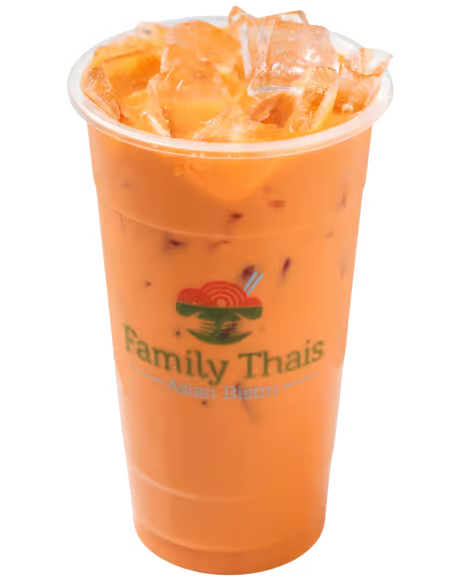 5.Thai Tea
5.Thai TeaThai tea is a sweet, creamy drink made from strong black tea, usually Ceylon or a local version of Assam. It’s brewed with sugar and often flavored with condensed milk, giving it that rich, smooth taste and signature orange color. When served cold, it’s poured over ice, sometimes with a splash of evaporated milk on top for that creamy swirl. In Thailand, you’ll find it in tall glasses at restaurants or in plastic cups or bags from street vendors. Some places even turn it into a blended drink, like a frappé. There are variations too—like a version without milk called “dark Thai iced tea,” or one with lime for a citrusy kick. People drink it hot in the mornings as well, often with fried dough sticks.
- 3
 1.Polish Cuisine
1.Polish CuisinePolish cuisine is all about comfort, rich flavors, and tradition. It’s the kind of food that sticks to your ribs, perfect for long winters and big family gatherings. Think hearty soups, meat-heavy dishes, and a lot of potatoes, cabbage, and bread. Pierogi are probably the most famous Polish dish—soft dumplings filled with anything from potato and cheese to meat, mushrooms, or sweet fruits. Then there’s bigos, a slow-cooked hunter’s stew packed with sauerkraut, fresh cabbage, sausage, and sometimes even wild game. It’s the kind of dish that gets better the longer it sits. If you like schnitzel, you’ll love kotlet schabowy, a breaded pork cutlet usually served with mashed potatoes and pickled cucumber salad. And for something truly Polish, there’s żurek—a sour rye soup with sausage and egg, often served in a bread bowl. Poland is also big on fermented foods like ogórki kiszone (pickled cucumbers) and kapusta kiszona (sauerkraut), which add a tangy kick to meals. And if you have a sweet tooth, Polish desserts won’t disappoint—pączki (fluffy doughnuts filled with rose jam), sernik (a dense cheesecake), and makowiec (a poppy seed roll) are just the start. To wash it all down? Vodka, of course. Poland has been perfecting it for centuries. But if you prefer something milder, there’s always hot tea with lemon or kompot, a homemade fruit drink. Polish food is all about big portions, simple ingredients, and bold flavors. It’s the kind of cooking that makes you feel at home, no matter where you’re from.
- 3
 2.Thai Cuisine
2.Thai CuisineThai cuisine is all about bold flavors, fresh ingredients, and a balance of sweet, sour, salty, bitter, and spicy tastes. Every meal feels like a mix of contrasts that somehow just works. You’ve got fragrant herbs like lemongrass, Thai basil, and kaffir lime leaves, paired with staples like fish sauce, chili, and coconut milk. Rice is at the heart of it all—jasmine rice is common in central and southern Thailand, while sticky rice rules up north and in the northeast. Meals are usually shared. There’ll be a spread of dishes—maybe a curry, a stir-fry, a soup, and a salad—all eaten with rice in the middle. The idea is to balance flavors across the meal rather than in just one dish. You might get the rich creaminess of massaman curry alongside the sharp, spicy crunch of som tam (green papaya salad) and the comforting warmth of a clear broth like tom yum. Street food is a huge part of everyday life. Walk down any road and you’ll find vendors grilling skewers of marinated meat, tossing noodles in sizzling woks, or dishing up hot bowls of noodle soup. Grab a plate of pad Thai, a bag of fried chicken with sticky rice, or a steaming bowl of boat noodles from a floating market. And if you’ve got a sweet tooth, there’s mango sticky rice, coconut-based desserts, and crispy pancakes filled with sweet custard. Different regions have their own twist. In the north, dishes like khao soi—a curry noodle soup topped with crispy noodles—are popular, while the northeast (Isan) is known for grilled meats, sticky rice, and punchy salads. Down south, expect fiery curries with plenty of coconut milk and fresh seafood. Even breakfast can be exciting—sometimes just rice and an omelet, other times noodle soups or patongko (Thai donuts) with sweetened condensed milk. No matter where you go in Thailand, the food is vibrant, flavorful, and often made to be enjoyed with others. It’s comforting, lively, and always about that perfect mix of flavors.
- 2
 4.Mexican Cuisine
4.Mexican CuisineThe one that we all know and love! Tacos, nachos, burritos, guacamole, quesadilla, tamales - I could go on and on! Spicy, tasty and full of fresh ingredients.
- 1
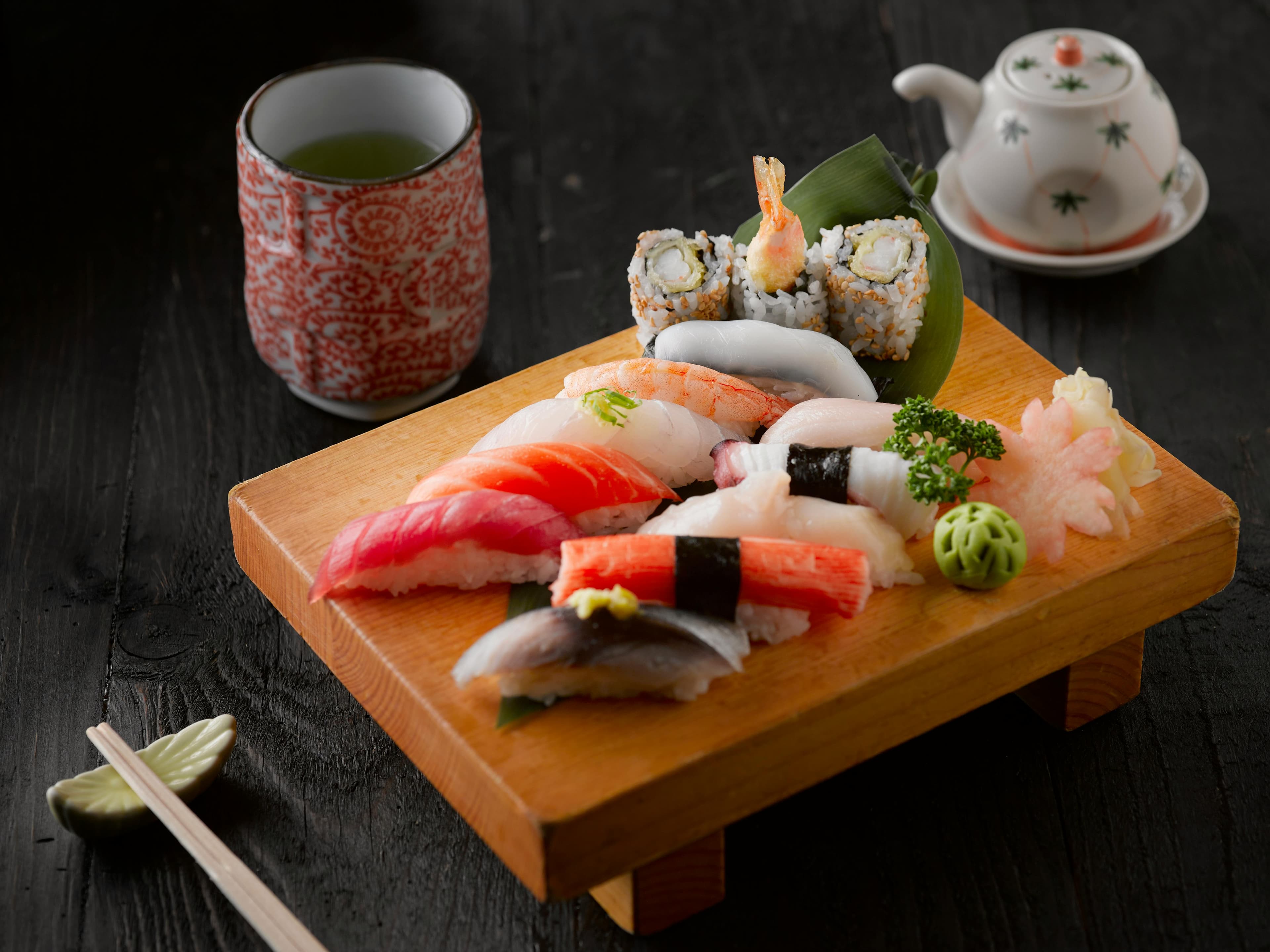 5.Japanese Cuisine
5.Japanese CuisineThe Japanese cuisine has given us so much it's hard to even find a place to start. You've got your sushi, ramen, udon, edamame, mochi balls, tempura, soba, bento boxes, sukiyaki, gyoza, onigiri, yakisoba, miso soup... They could be number one on this list based on the sushi alone!
- 1
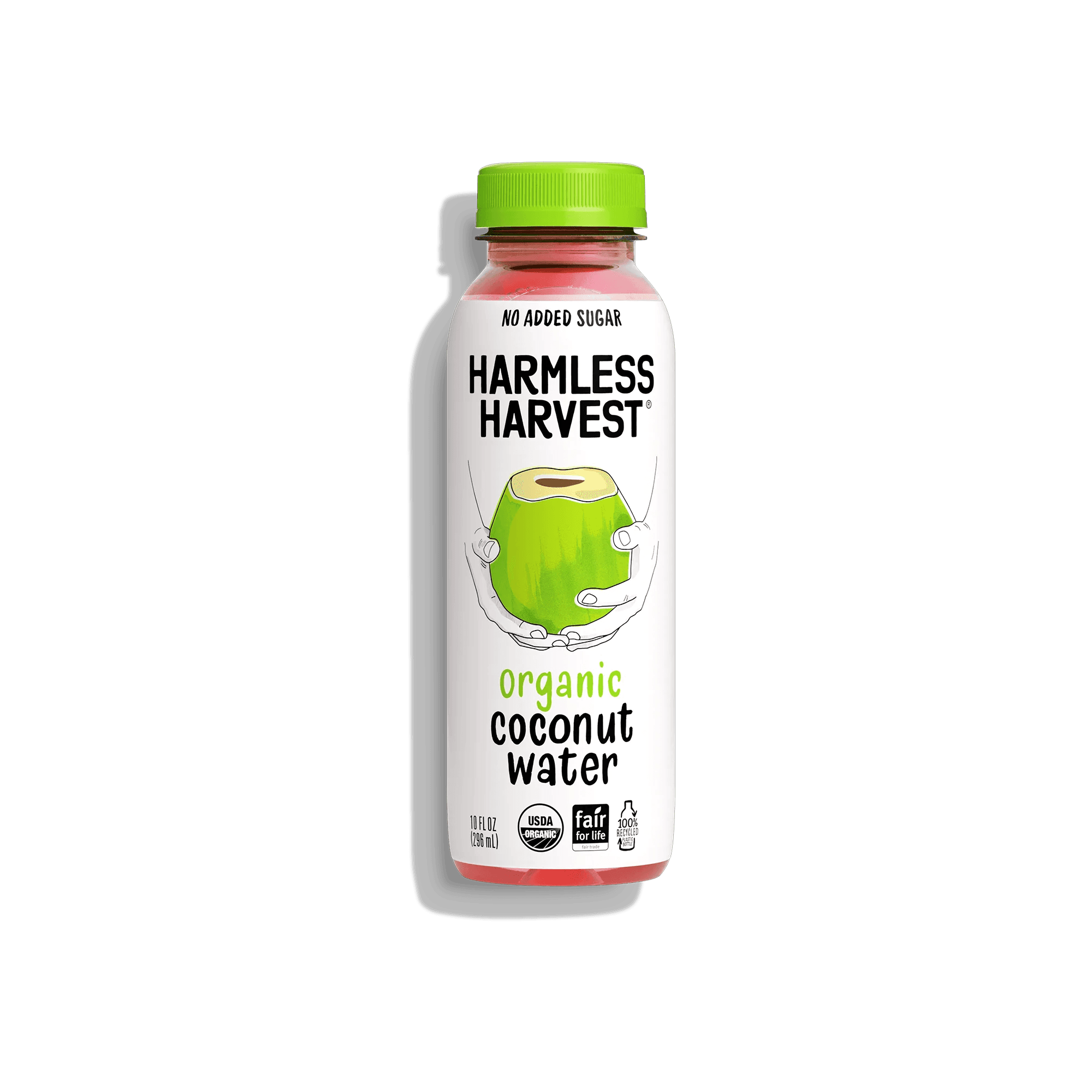 6.Harmless Harvest Organic Coconut Water
6.Harmless Harvest Organic Coconut WaterHarmless Harvest Organic Coconut Water is a pure, single-ingredient coconut water made from organic Thai coconuts. It stands out because of its naturally pink color, which happens due to antioxidants in the coconut water reacting with light and oxygen. The pink hue doesn’t change the taste—it’s still naturally sweet, crisp, and refreshing. This coconut water has no added sugar, preservatives, or artificial ingredients. It’s packed with electrolytes, including potassium, making it a good choice for hydration, whether you’re working out, recovering from a night out, or just looking for a refreshing drink. It can also be used in smoothies, cocktails, or just straight from the bottle. Harmless Harvest focuses on sustainability and ethical sourcing. Their coconut water is USDA Organic certified, Fair for Life certified, and their bottles (excluding the cap and label) are made from 100% recycled plastic. The company partners with organic farms that use sustainable farming practices, ensuring no synthetic fertilizers or pesticides are involved. The coconut water comes in various sizes, with a 10oz 12-pack priced at around $48. It’s available for purchase online and in stores. Since it’s perishable, it should be kept refrigerated once received. While it doesn’t require refrigeration during shipping, chilling it before drinking helps maintain its fresh, clean taste.
- 2
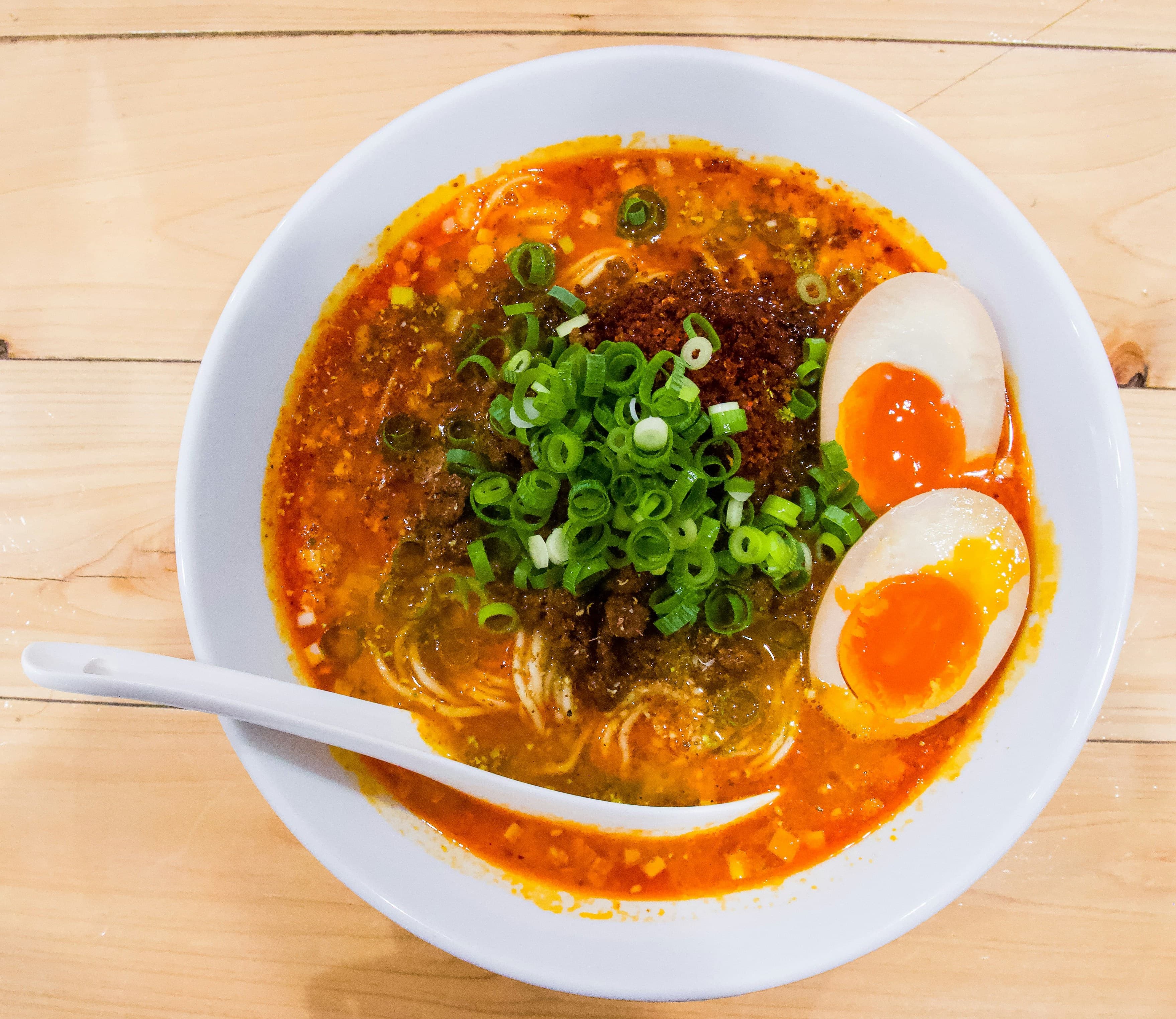 1.Tantanmen
1.TantanmenAlso know as Tan Tan Ramen. This is the best ramen, period. Rich, creamy, and spicy, topped with eggs and ground pork. It has a distinctive flavor thanks to the use of chili oil and doubanjiang, a type of spicy bean paste. It originated from similar Sichuanese dish called Dandan noodles.
- 1
 1.Earth.fm app
1.Earth.fm appEarth.fm is a kind of a digital retreat where you can immerse yourself in the sounds of nature. It’s designed to help people unwind, reconnect with the Earth, meditate, and focus. Key Features: - Nature Soundscapes: A curated collection of soothing nature recordings from around the globe. - Interactive Soundmap: Explore sounds from different regions using a world map. - Mobile App: Enjoy nature's sounds wherever you are. - Quiet Places: Discover and learn about tranquil locations worldwide. - Support for Recordings: Encourages new contributions through grants. Benefits: Earth.fm offers a natural way to reduce stress, enhance focus, and nurture a connection with the environment. Whether you’re looking to meditate, work, or relax, the platform’s serene soundscapes provide an easy escape from the busyness of daily life. Use Cases: Perfect for anyone needing a moment of calm, Earth.fm is ideal for background sounds during work or study, meditation sessions, or simply unwinding after a long day. It’s also a great resource for nature lovers who want to explore the sounds of different ecosystems around the world.
- 1
 2.Breathworx
2.BreathworxBreathworx is an on-demand breathwork service designed for stress relief, decision clarity, and a happier mood, with guaranteed results in a single session—even for those who “can’t meditate.” Folks who’ve tried it say they: Feel less “in their head” generally Feel an overwhelming sense of gratitude and clarity Feel more confident, calm, & authentic in social situations Get clearer answers in big decision making Relieve stress, anxiety, heartbreak, loss, and depression Have more reliable stress coping mechanisms Release the “emotional gunk” that builds in them Feel more grounded and in touch with their bodies Are less reactive in difficult situations The classes primarily use guided meditations and Circular Breathwork, a simple technique involving 2 breaths in (belly, then chest) and 1 breath out, all through the mouth. Also known as 2-part breathwork, holotropic breathwork, or triangle breathing, this method yields transformative results in a short amount of time. Breathworx offers both full-length 40-60 minute sessions and shorter 10-20 minute versions, accessible on any browser or device, anytime. Whether you use this "cheat code" once a week, once a month, or daily during particularly hard times, it's all up to you. Many people find that even a single class is worth more than years of therapy, where one session can cost more than a yearly Breathworx membership. In fact, if you take just one full class a year, you’ll likely value the benefits beyond the yearly subscription price. Most in-person classes have about 30 minutes of breathing wrapped in some meditation or gratitude practice, making for about 45 minutes total. Breathworx offers similar formats, as well as shorter versions, ensuring there's a session that fits your schedule and needs. Whether you're looking to relieve stress, gain clarity, or simply add a powerful tool to your wellness toolkit, Breathworx is designed to be as transformational, enjoyable, and meaningful as possible.
- 0
 57.Mentio
57.MentioMentio is a social media monitoring tool that uses AI to supercharge your product’s online presence by automatically engaging in relevant conversations across platforms like Twitter, Reddit, LinkedIn, Hacker News and more. It scans these networks for discussions related to your chosen keywords and crafts natural, context-aware AI replies for social media that casually mention your product.
- 0
 1.AnimeDeskMat
1.AnimeDeskMatAnime Desk Mat is an online shop that sells desk mats. We specialize in anime. In Anime Desk Mat, we provide a lot of anime and characters for you to choose from. We have more than 240 anime in our shop up till now. Whether you are an anime fan, anime enthusiast or otaku we hope you enjoy our anime desk mats.
- 1
 1.SafeSelect - Simple Safe Shopping. Keep toxic products out of your home
1.SafeSelect - Simple Safe Shopping. Keep toxic products out of your homeFeatures: - Checks Food and Personal Care ingredients for toxins, allergens, or diet restrictions on any site - Effortlessly auto-scans Amazon product pages for harmful ingredients - Highlight text and right-click for manual ingredient scans on any site - Scans images of ingredient lists for harmful substances - Update your user profile with allergy or diet information for personalized ingredient checks - Alerts for thousands of ingredients that are known or suspected to cause cancer, interfere with hormones, harm fertility, cause birth defects or developmental issues, trigger allergies, or are otherwise banned or restricted. - Free to use, unbiased, and ad-free. - Centered on privacy – we don't even require your email. SafeSelect: Your Wellness Ally in Smart Online Shopping Tired of researching product ingredients in food and personal care items? SafeSelect makes it simple. SafeSelect tells you which products are safe and which aren’t, so you don’t have to. Avoiding toxic ingredients? On a diet? Have allergies? SafeSelect has you covered. Regulations often lag behind science, leaving harmful ingredients in everyday products. It’s up to us to stay informed and protect our health. But keeping track of countless additives and staying updated with new research is overwhelming. SafeSelect helps you shop safely and intentionally. It takes the burden of research off your shoulders.
- 0
 4.Ikigai: The Japanese Secret to a Long and Happy Life
4.Ikigai: The Japanese Secret to a Long and Happy LifeDiscover the secrets to a long, healthy, and fulfilling life with "Ikigai: The Japanese Secret to a Long and Happy Life" by Héctor García and Francesc Miralles. This insightful book delves into the Japanese concept of ikigai, or a "reason for being," which is believed to be a key factor in the remarkable longevity of the residents of Okinawa, a Japanese village known for having the world’s highest percentage of centenarians. Through interviews with these vibrant centenarians, the authors uncover how the principles of ikigai—where passion, mission, vocation, and profession intersect—contribute to their happiness and longevity. The book reveals the residents' daily practices, from their nutrient-rich diets and active lifestyles to their strong community bonds and purposeful work. "Ikigai" provides practical advice and tools to help readers discover their own ikigai, offering a blend of cultural wisdom and actionable steps towards a life filled with purpose, health, and joy. This book is a valuable resource for anyone interested in enhancing their well-being and finding deeper satisfaction in everyday life.
- 0
 22.Make It Quick
22.Make It QuickMake It Quick simplifies video creation, turning your words into fully edited, high-quality videos in minutes. Key Features 1. Automatically generates short videos (30 to 60 seconds) 2. Automatically generates long videos (60 to 120 seconds) 3. Auto-generates script 4. Full Editorial Access 5. 4K resolution Benefits 1. Saving time 2. Proven viral video style Use Case Here are several use cases for Make It Quick, showcasing how the platform can be used across different industries and for various needs: 1. Content Marketing Use Case: A small business wants to promote their latest product on social media. How It Helps: - Generate a script highlighting the product’s benefits and unique features. - Create an engaging video with AI visuals (e.g., product in action, lifestyle imagery) and voice narration. - Share the video directly to platforms like TikTok, Instagram, or YouTube Shorts. 2. Educational Content Use Case: An educator or tutor wants to create short, informative videos for their students. How It Helps: - Enter a topic like “The Solar System” and generate a script explaining it concisely. - Use AI to generate visuals of planets, space, and astronomical phenomena. - Add narration to explain concepts, making the content engaging and accessible. 3. Social Media Influencers Use Case: A lifestyle influencer wants to consistently post creative content to grow their audience. How It Helps: - Quickly create videos on trending topics or personalized messages to followers. - Use multi-language support to expand their reach to international audiences. - Customize visuals and scripts to align with their personal brand.
- 0
 44.Presence
44.PresenceSleep better, relieve stress, and find purpose with Presence - your total guide to well-being. Take the next step on your journey with proven practices for integrated and holistic self-care. For 20 years, we've been empowering millions of people to balance their bodies, revive their minds, and activate their spirits. Now, for the first time, you can easily access our expert knowledge in one easy to use app. Whether you’re new to meditation and mindfulness, or you're an advanced practitioner, find your peace on a path that suits you. Relax with our best meditations, self-care tools, tips, and practices for your well-being based on our unique wisdom and scientific research. With an extensive library of knowledge for your mind, body, and spirit, plus new meditations featured daily, Presence is specially designed to help you discover your best self. Transform your health & well-being by: - Learning how to meditate - Finding immediate relief from daily stressors - Discovering your unique you - mind, body & spirit - Going deeper on your journey to self-discovery and purpose Uncover a range of popular topics including: - Better Sleep - Stress & Anxiety Relief - Peace & Calm - Confidence, Purpose & Success - Health, Weight & Increased Energy - Relationships & Connection - Creativity & Consciousness - Personal & Spiritual Growth Chopra's complete guide to mind, body and spirit comes with: - Over 500 meditations and practices representing our best tools - A variety of well-being experts to guide your experience - 5, 10, 20 and 30-minute sessions to suit your needs wherever you are - Our most popular well-being challenges including our 21-Day and Journey to Well-being programs - A quiz to discover your unique mind-body type and receive personalized content designed for you - Daily recommended sessions to build your practice - Monthly new programs and collections - Personalized tracking to help you stay motivated and see your progress
- 2
 2.Momentum
2.MomentumMomentum replaces your default new tab screen with a beautiful, personalized dashboard. It shows you the time, current weather, and a beautiful landscape photo. It comes with simple productivity tools such as a pomodoro timer, to-do lists, focus time, link lists etc. Even if you don't use the productivity tools, it's just gorgeous to look at.
- 3
 1.Ireland
1.IrelandIreland is a small country with a big presence. Its capital, Dublin, is a lively city known for its mix of history, culture, and modern energy. Walk through the streets and you’ll find Georgian buildings, contemporary architecture, and plenty of places to hear live music or have a chat over a coffee—or a pint. The country has changed a lot over the past few decades. Once more rural and conservative, modern Ireland is progressive and increasingly diverse. It's known for its strong economy, driven in part by tech and finance companies that have set up shop in Dublin. But away from the business districts, life moves at a slower pace, especially in smaller towns and the countryside. Culture runs deep. Ireland has long punched above its weight in literature, music, and the arts. Writers like James Joyce and W.B. Yeats are still celebrated, but contemporary authors, filmmakers, and musicians continue to make their mark. Traditional Irish music hasn’t faded—it just sits comfortably alongside modern genres, often blending with them in interesting ways. Dance, especially the kind popularized by Riverdance, remains part of the cultural fabric without feeling forced or overly nostalgic. Food in Ireland has shifted from its meat-and-potatoes reputation. While hearty stews and fresh-baked bread are still common, there’s been a focus on fresh, local ingredients and creative cooking. In coastal areas, you’ll find top-quality seafood, and farmers' markets are popular across the country. Sport plays a big part in daily life. Gaelic games like football and hurling are uniquely Irish and deeply connected to local pride, but people follow soccer, rugby, and golf with just as much enthusiasm. While Ireland’s landscape is famous—green fields, dramatic coastlines, and rugged hills—it’s not just postcard scenery. Many people live in suburban areas, and the country has seen growing urban development. Still, nature is never far away. Ireland’s recent history includes both economic highs and lows, as well as major social changes. The country has legalized same-sex marriage, eased restrictions on abortion, and shifted away from the strong influence of the Catholic Church. Yet, traditional values like community and hospitality haven’t disappeared—they’ve just adapted to a changing world. At its core, Ireland is a place that blends the old with the new. It’s a country where centuries-old traditions coexist with modern ideas, where the past is present but doesn’t overshadow the future.
- 4
 2.What I Talk About When I Talk About Running
2.What I Talk About When I Talk About RunningWhat I Talk About When I Talk About Running is a memoir by Haruki Murakami where he talks about two things that define a big part of his life: running and writing. Murakami didn’t always plan on being a novelist. He was running a jazz bar in his twenties when, while watching a baseball game, he suddenly thought, “I could write a novel.” He gave it a shot, it worked out, and he eventually sold his bar to focus on writing full-time. But sitting at a desk all day, smoking and not moving much, wasn’t doing his health any good. That’s when he picked up running. For Murakami, running is more than just exercise—it’s part of his routine and, in a way, a metaphor for writing. Both take endurance. Both are long hauls where you push yourself day after day, even when you don’t feel like it. The book follows him as he trains for marathons, competes in triathlons, and grapples with the slow decline of his physical abilities as he ages. He talks a lot about acceptance—accepting getting older, accepting bad race times, and accepting that sometimes you just don’t do as well as you hoped. His attitude is basically: That’s life. You move on. The writing style is straightforward, like he’s just talking to you over a coffee. He doesn’t dress things up. Sometimes he rambles, mentioning things like cycling habits or going off on tangents about global warming. At one point, he describes running the original marathon route in Greece—sun blazing, salt stinging his eyes, everything uncomfortable. But through it all, there’s this calm acceptance. He’s not trying to convince anyone to run; he just shares what it means to him. By the end, what sticks isn’t just the running or the writing, but the way he embraces both the highs and the lows—the post-race blues, the joy of finishing, and the satisfaction of something as simple as a cold beer after a long run. It’s a book about effort, routine, and learning to keep going, no matter what.
